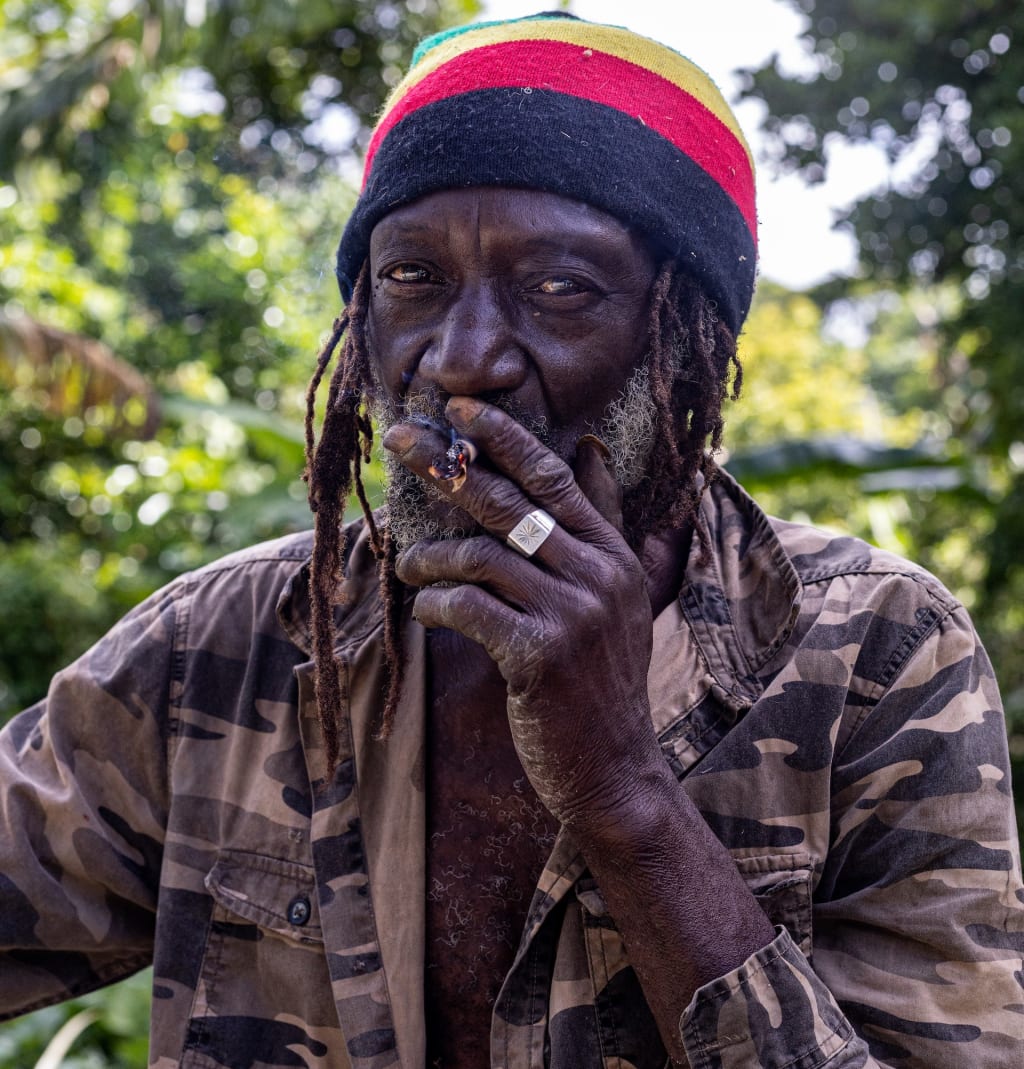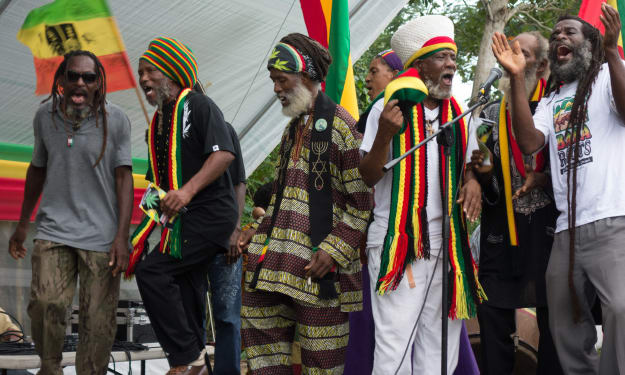
Rastafarianism is a religion and way of life that originated in Jamaica in the early 20th century. It is a belief system that places a strong emphasis on natural living and holistic wellness, including a deep respect for the environment and a connection to the earth. One of the most significant aspects of Rastafarian culture is herbalism, the traditional use of medicinal plants for healing and wellness. In this blog post, we will explore the importance of herbalism in Rastafarian culture, its traditional healing practices, and the use of medicinal plants for physical and spiritual wellness.
Rastafarian Herbalism and Healing Practices
Rastafarian herbalism is rooted in traditional healing practices that have been passed down for generations. It involves the use of medicinal plants, herbs, and natural remedies to promote physical and spiritual well-being. In Rastafarian culture, herbal medicine is believed to have the power to heal both the body and the soul.
One of the most well-known medicinal plants used in Rastafarian herbalism is cannabis. It is believed to have healing properties and is often used for spiritual and medicinal purposes. Aloe vera is another commonly used plant in Rastafarian herbalism due to its soothing and healing properties. Moringa, a plant that is rich in vitamins and minerals, is also widely used in Rastafarian herbalism for its health benefits.
Rastafarian herbalism uses a variety of methods to prepare and administer herbal remedies, including teas, tinctures, and poultices. Herbal teas, for example, are made by steeping medicinal plants in hot water, while tinctures are concentrated herbal extracts that are often used for more potent healing effects. Poultices, which are made by crushing or grinding herbs into a paste and applying them to the skin, are used to treat a variety of ailments, from wounds to joint pain.
The belief in the healing power of medicinal plants in Rastafarian culture goes beyond the physical body and extends to the spiritual realm. Herbal medicine is believed to be a natural and holistic way to achieve balance and harmony between the mind, body, and spirit.
The Spiritual Significance of Herbalism in Rastafarianism
In Rastafarianism, there is a deep spiritual connection between humans and plants. It is believed that plants have their own unique energy and healing properties that can help us connect with the divine and achieve spiritual enlightenment.
Herbalism plays a significant role in Rastafarian spiritual practices, such as grounding, meditation, and prayer. The use of herbs and plants is considered a way to connect with nature and access its healing powers. In fact, many Rastafarian rituals and ceremonies incorporate herbalism as a way to create a sacred space and channel spiritual energy.
Rastafarian herbalism also emphasizes the importance of mindfulness and intention when using medicinal plants. Herbal remedies are not simply taken for physical ailments but are also used to support spiritual growth and well-being. The use of medicinal plants is believed to help balance the energy of the body and promote a sense of peace and harmony.
In addition to using herbs for spiritual practices, Rastafarian culture also emphasizes the importance of sustainable and responsible harvesting of medicinal plants. The use of natural remedies is seen as a way to honor and respect the natural world and its resources.
Ethics of Rastafarian Herbalism
In Rastafarianism, herbalism is not just a means of physical healing, but also a spiritual practice that involves ethical considerations. The use of medicinal plants is guided by the ethical principles of compassion and respect for all forms of life. Rastafarians view plants as sacred entities that are integral to the balance of nature and human life.
As a result, Rastafarian herbalism emphasizes the importance of using medicinal plants in a responsible and ethical manner. This includes respecting the plant's life cycle and natural habitat, as well as ensuring that the plant is not overharvested or exploited for commercial gain.
Rastafarian herbalists believe that the ethical use of medicinal plants involves treating them with reverence and gratitude, acknowledging the plant's spiritual and healing properties. For instance, some Rastafarian herbalists may recite prayers or perform rituals before and during the preparation of herbal remedies.
The Sustainability and Ethics of Rastafarian Herbalism
Rastafarian herbalism is deeply rooted in sustainable and ethical practices, reflecting the culture's reverence for the earth and its commitment to living in harmony with nature. The intersection of sustainability and ethics is an important aspect of Rastafarian herbalism, as these two principles are interconnected and mutually reinforcing.
Sustainability in herbalism involves using natural resources in a way that ensures their continued availability for future generations. In Rastafarian culture, sustainability is a core value that is reflected in the cultivation and use of medicinal plants. Rastafarians believe that the earth is a sacred entity, and they strive to cultivate plants in a way that is respectful of the natural environment. For example, community gardens are a common practice in Rastafarian culture, where medicinal plants are grown in a sustainable way. These gardens are often maintained using traditional techniques, such as companion planting and crop rotation, to ensure the long-term health of the soil and the plants.
Ethics in herbalism involves using medicinal plants in a way that is respectful of the plants themselves, as well as the communities that rely on them. In Rastafarian culture, ethics is a core value that is reflected in the use of medicinal plants. Rastafarians view plants as living beings with their own unique energy and healing properties, and they believe that these plants should be used with respect and care. For example, Rastafarians use only natural and organic materials for medicine preparation, avoiding the use of synthetic chemicals and harmful additives.
Balancing sustainability and ethics in herbalism is important for the long-term benefit of the community and the environment. Sustainable practices ensure that medicinal plants are available for future generations, while ethical practices ensure that the use of these plants is respectful and responsible. Rastafarian herbalism serves as an excellent example of this balance, as it promotes the use of medicinal plants in a way that is both sustainable and ethical.
Conclusion
Rastafarian herbalism is a vital aspect of the community's natural living and holistic wellness practices. Traditional healing methods such as herbal teas, tinctures, and poultices are used to heal both the body and the soul, with commonly used medicinal plants including cannabis, aloe vera, and moringa. The spiritual significance of herbalism in Rastafarianism is rooted in the belief that plants have unique energy and healing properties, which are utilized in grounding, meditation, and prayer.
Furthermore, sustainable and ethical practices are essential in Rastafarian herbalism, as the community views the earth as a sacred entity that must be treated with respect and compassion. Examples of sustainable and ethical practices include growing medicinal plants in community gardens and using only natural and organic materials for medicine preparation.
Ultimately, sustainability and ethics are interconnected and mutually reinforcing in Rastafarian herbalism, and it is essential to balance both for the long-term benefit of the community and the environment. By learning more about sustainable and ethical herbalism practices, we can promote holistic wellness and environmental sustainability in our own lives.
Final Note
If you’re interested in exploring who is Jah and Rastafarian culture further, we invite you to check out Fifth Degree’s collection of Rastafarian clothing. Our clothing is designed to reflect the spirit and teachings of Rastafarianism, with bold colors, empowering messages, and a commitment to sustainability and ethical production. We believe that what you wear can be a powerful expression of your values and beliefs, and we’re proud to offer a range of high-quality, stylish, and socially conscious clothing for individuals who are seeking to live in harmony with nature and the divine. Visit our website today to learn more about our collection and find the perfect Rastafarian clothes for woman for you.






Comments
There are no comments for this story
Be the first to respond and start the conversation.